-
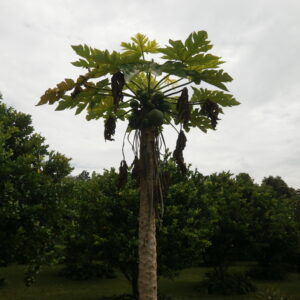
Papaya
Fruit orchard ₡2,550.00 Add to cart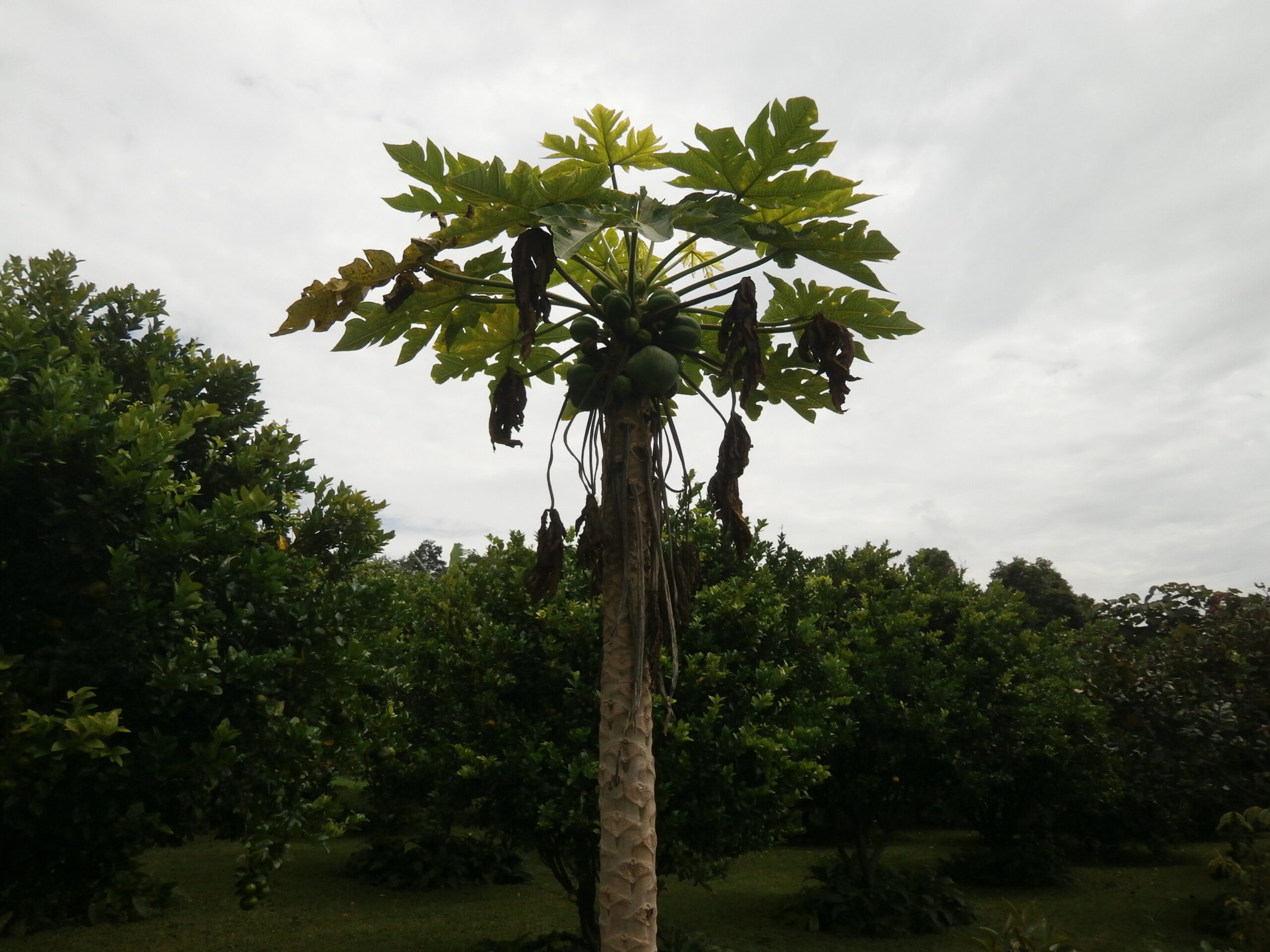
Papaya
₡2,550.00
SKU: 1536 Category: Fruit orchardScientific name: Carica papaya
Family: Caricaceae
Origin: Mexico and C America
Medicinal use: Carica papaya is a very rich shrubby fruit of the genus Carica in the family Caricaceae. Its fruit is commonly known as papaya, papayón, olocotón, papayo, mamón, milky or milky. The fruits have a smooth texture and an oblong shape, and can be green, yellow, orange or pink. The fruit is usually consumed raw, without its peel and its seeds. The unripe green papaya fruit can be eaten in salads and stews.
17 in stock
-
Out of Stock
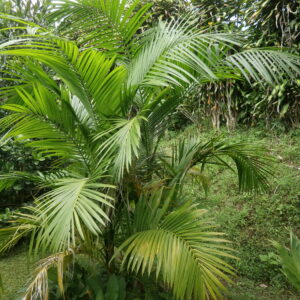
Palm, Acai
Fruit orchard ₡6,300.00 Read more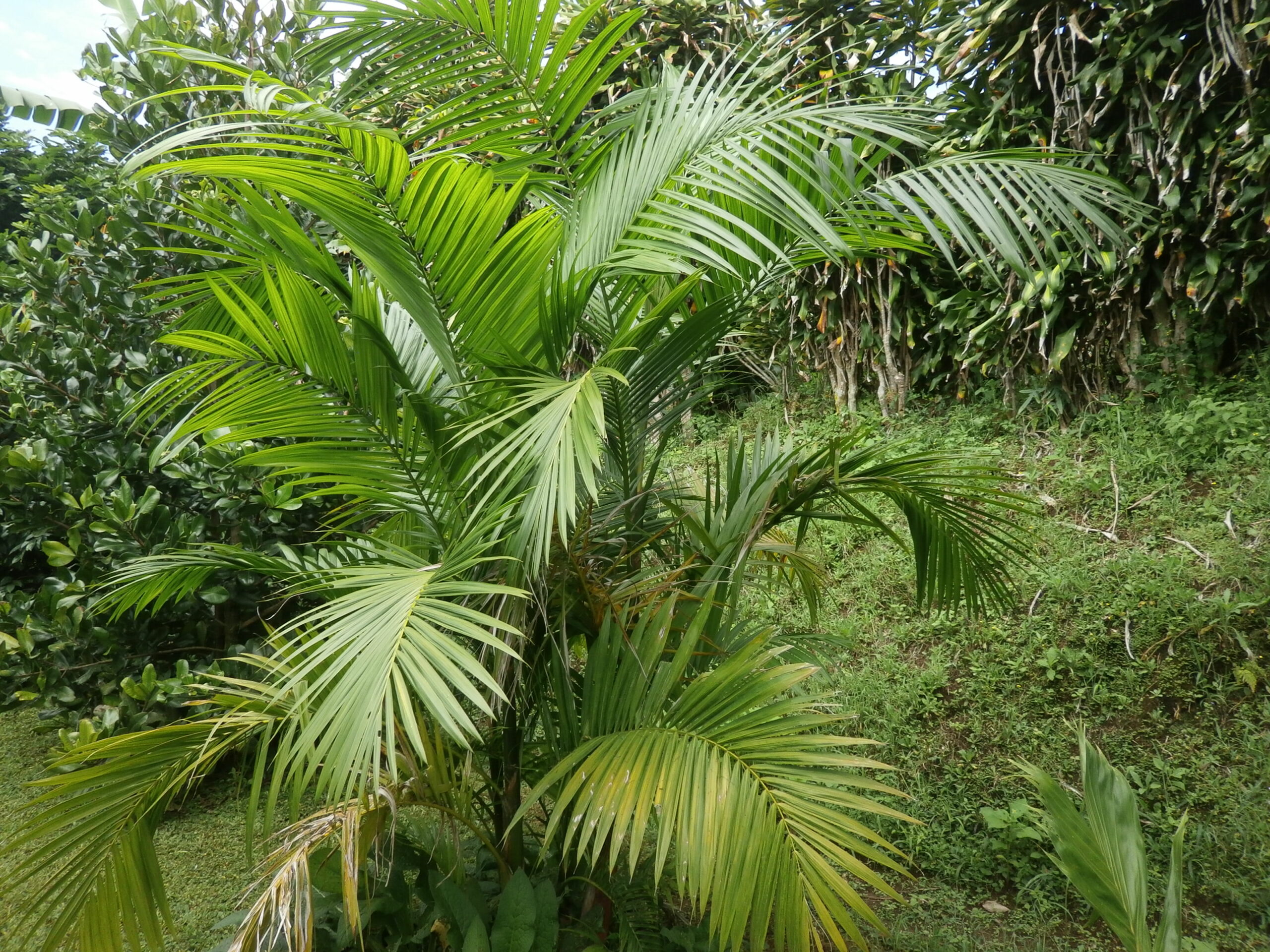
Palm, Acai
₡6,300.00
SKU: 1520 Category: Fruit orchardScientific name: Euterpe oleracea
Family: Arecaceae
Origin: S America
Medicinal use: The date palm appreciated for the nutritional properties of its fruit. Its consumption dates from pre-Columbian times and it is a very important food in the Amazonian diet. The fruit of this palm tree is edible and is consumed in the form of drinks, sweets, and ice cream. For every 100 g, the pulp of the fruit contains 8.1 g of protein; 52.2 g of carbohydrates (including 44.2 g of fiber).
Out of stock
-
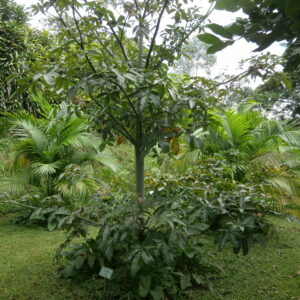
Chestnut, Malabar
Fruit orchard ₡3,750.00 Add to cart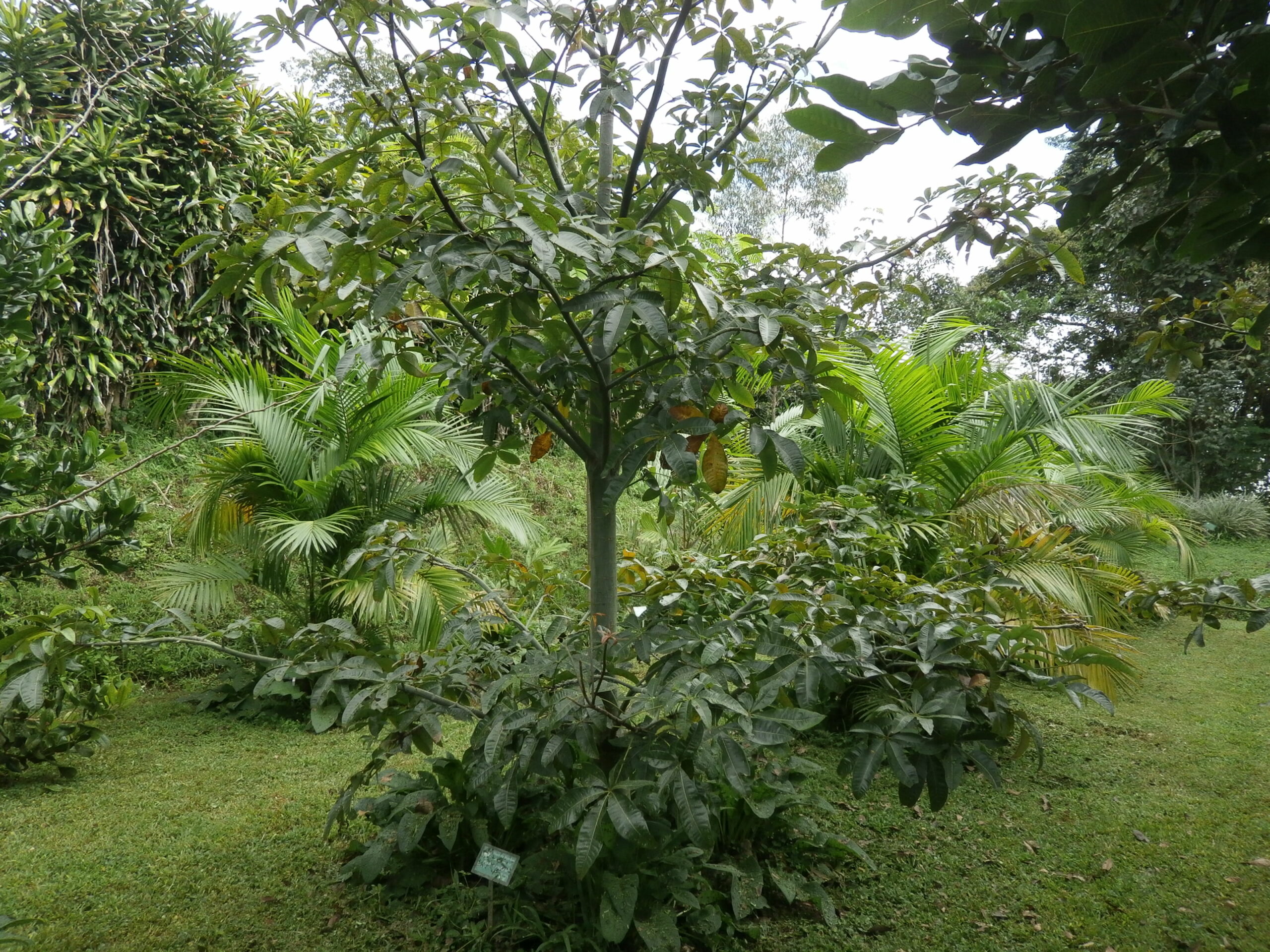
Chestnut, Malabar
₡3,750.00
SKU: 1435 Category: Fruit orchardScientific name: Pachira insignis
Family: Malvaceae
Origin: Tropical America
Medicinal use: Pachira insignis is an arboreal species of humid tropical soils. In addition to their ornamental use, the leaves, roots, and flowers of malabar nuts are used for medicinal purposes. The chemical constituents in this are alkaloids vasicin, vasicinone, vasicinol, maiontone, and ketone essential oil.
82 in stock
-
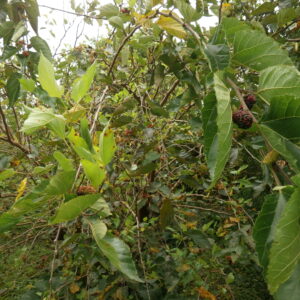
Mulberry, Black
Culinary Garden, Fruit orchard ₡2,550.00 Add to cart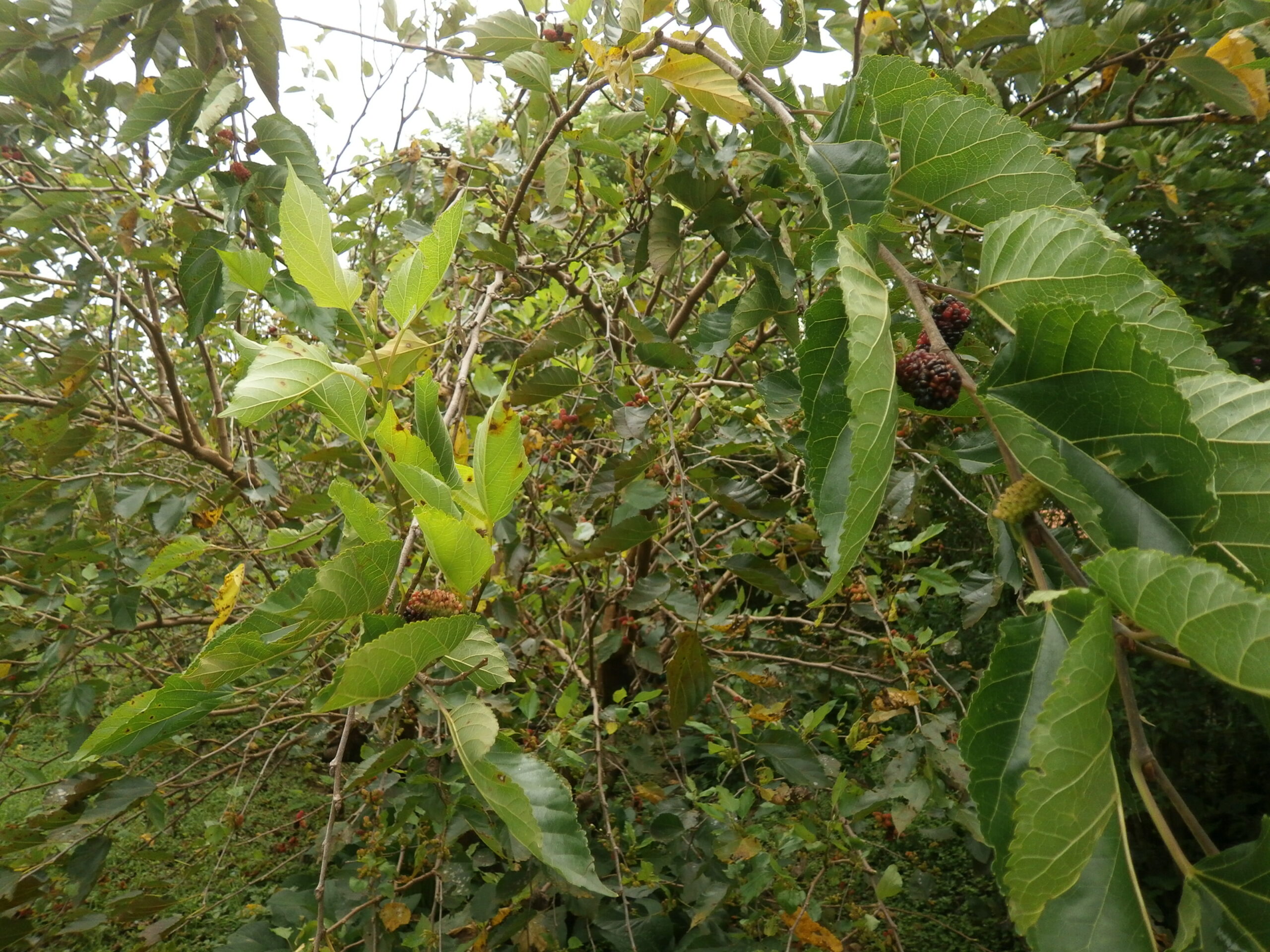
Mulberry, Black
₡2,550.00
SKU: 1390 Categories: Culinary Garden, Fruit orchardScientific name: Morus nigra
Family: Moraceae
Origin: Asia
Medicinal use: Morus nigra, is a tree species belonging to the Moraceae family, native to southwestern Asia. The edible fruit is purple-black, the fruit is refreshing and can be consumed directly or made with jam, syrups or drinks. Blackberries are rich in vitamin C. Blackberry syrup has been used as a gargle against inflammation.
35 in stock
-
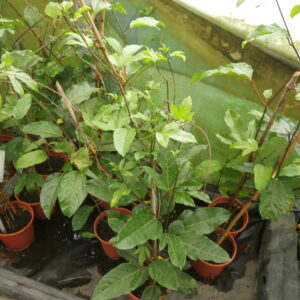
Passion fruit, Maracuya
Fruit orchard ₡1,900.00 Add to cart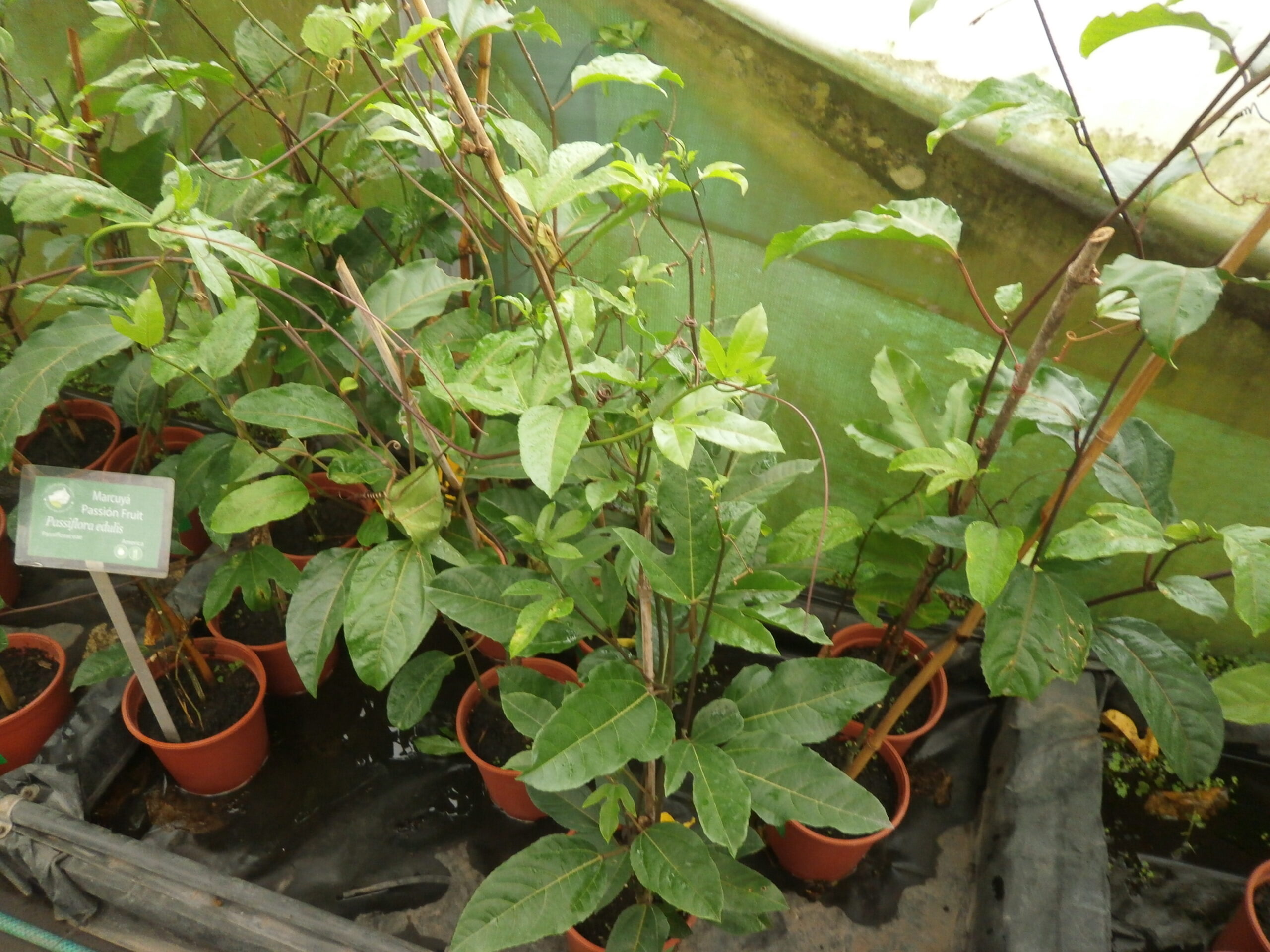
Passion fruit, Maracuya
₡1,900.00
SKU: 1310 Category: Fruit orchardScientific name: Passiflora edulis
Family: Passifloraceae
Origin: S America
Medicinal use: Passion flower (Passiflora edulis) is a climbing plant, typical of South and Central America; specifically, it is considered native to the Amazon of Peru, its edible fruit, yellow or purple, is the passion fruit. The passionflower fruit is an oval or round berry, between 4 and 10 cm in diameter, fibrous and juicy, covered with a thick, waxy, delicate and inedible rind. The pulp has a lot of little seeds.
33 in stock
-
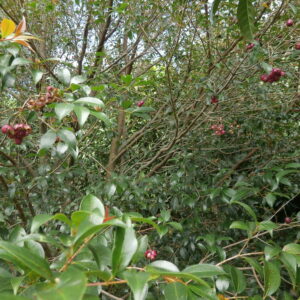
Lilli pilli
Fruit orchard ₡2,550.00 Add to cart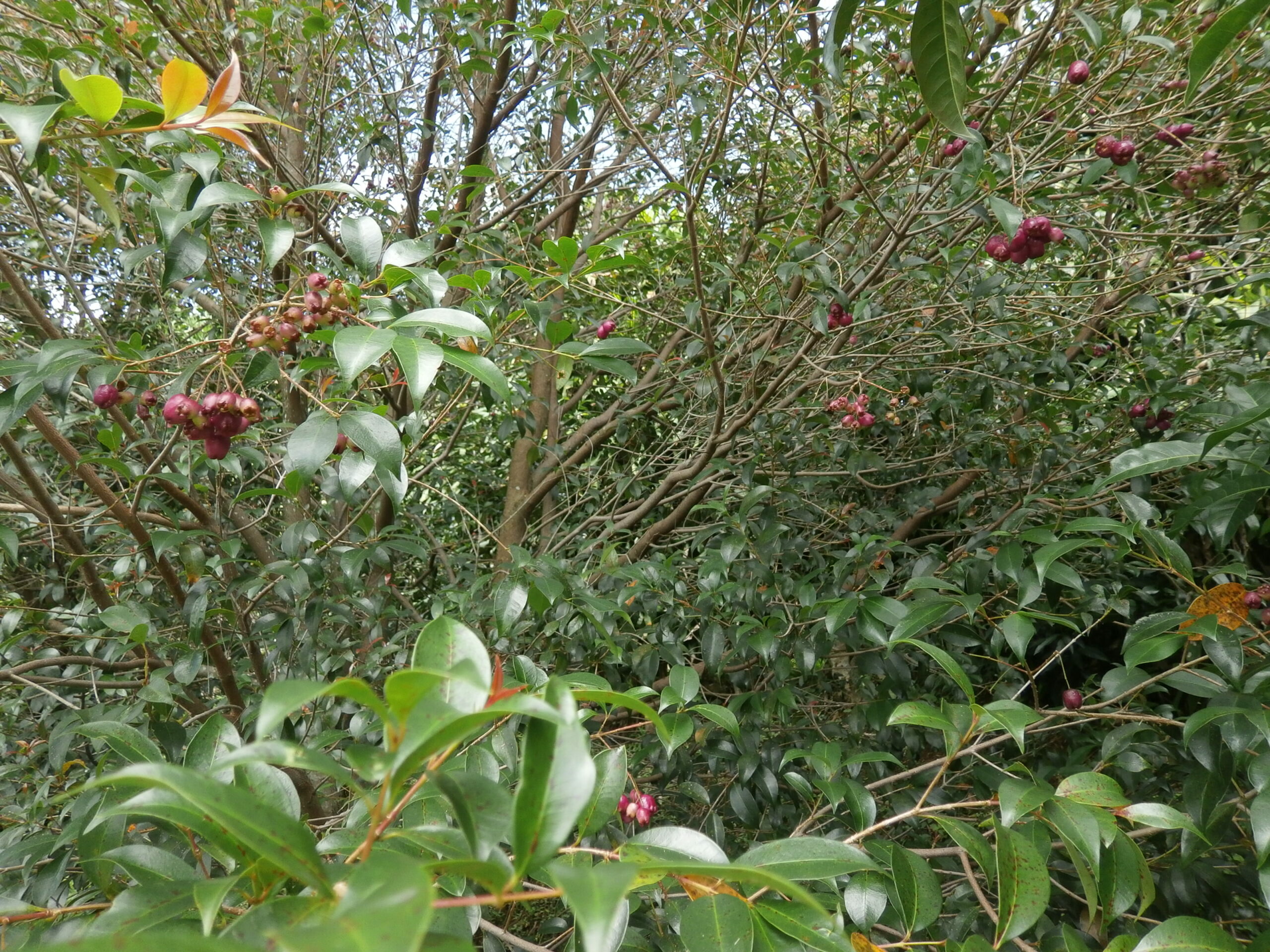
Lilli pilli
₡2,550.00
SKU: 1305 Category: Fruit orchardScientific name: Syzygium luehmannii
Family: Myrtaceae
Origin: New Guinea and Australia
Medicinal use: Syzygium luehmannii, also known as riberry, small-leaved pilly lilly, satinash cherry, alder cherry. The tree can reach up to 30 meters in height in the forest, the berry has an acid taste similar to that of the blueberry, which has a hint of cloves. The fruit is commonly used to make a distinctive jam, and is also used in sauces, syrups, and jams.
7 in stock
-
Out of Stock

Lemon, Sweet
Fruit orchard ₡2,550.00 Read more
Lemon, Sweet
₡2,550.00
SKU: 1226 Category: Fruit orchardScientific name: Citrus × limon
Family: Rutaceae
Origin: Asia and India
Medicinal use: Citrus × limetta is a kind of citrus. It has a multitude of common names, such as sweet limetta, Mediterranean sweet lemon, sweet lemon, sweet lime and / or simply lime. The sweet lemon has irregular branches, and a relatively soft, greyish-brown wood. The sweet lemon fruit is edible and contains essential oils. The tree for its part is used as an ornamental and as a pattern for grafting.
Out of stock
-
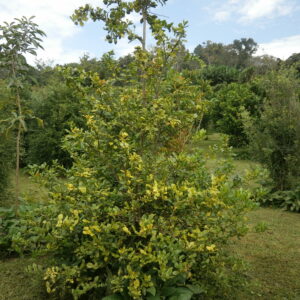
Kaffir lime
Culinary Garden, Essential Oil garden, Fruit orchard ₡7,500.00 Add to cart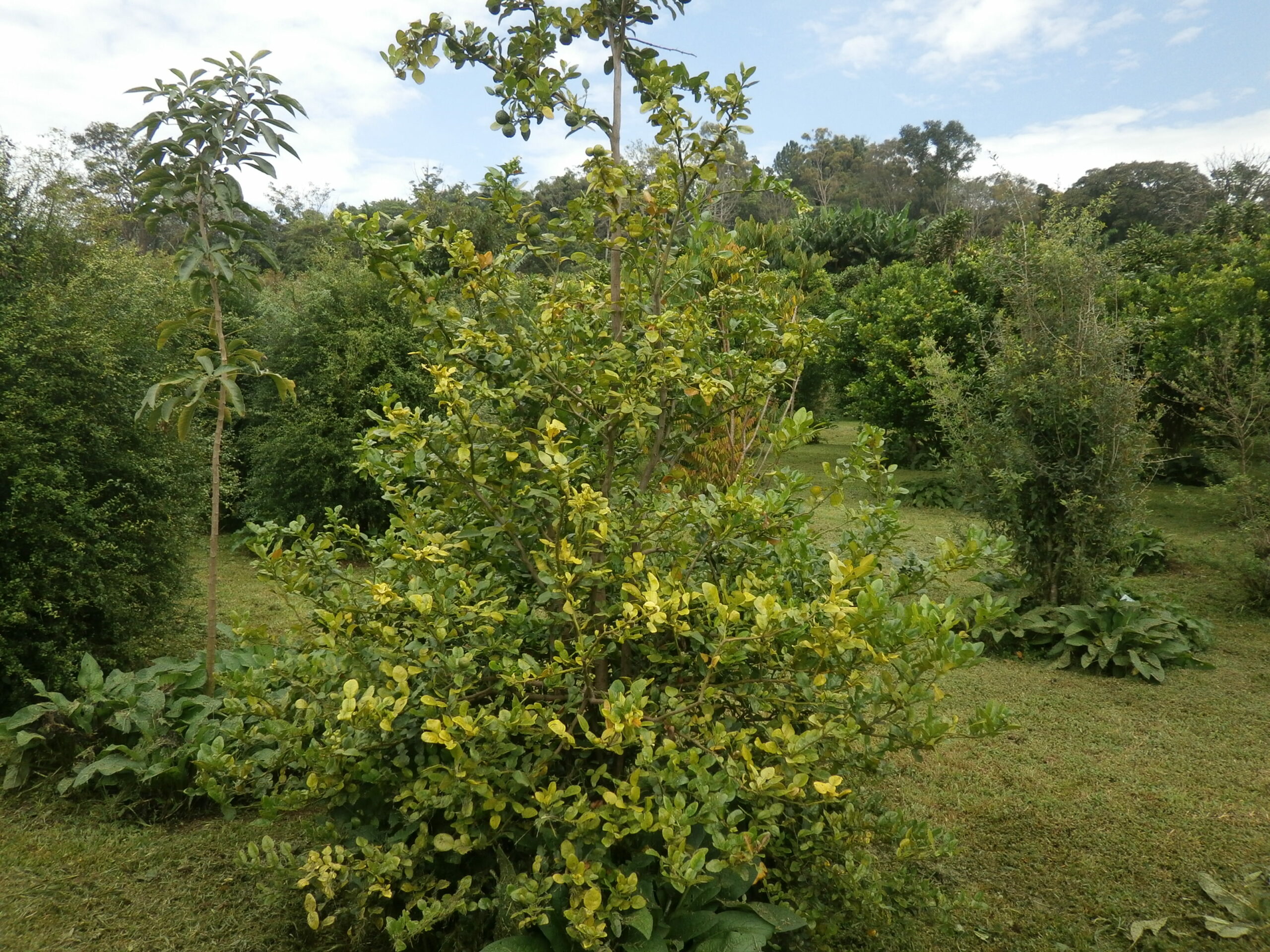
Kaffir lime
₡7,500.00
SKU: 1230 Categories: Culinary Garden, Essential Oil garden, Fruit orchardScientific name: Citrus hystrix
Family: Rutaceae
Origin: China and New Guinea
Medicinal use: The kaffir or kafir lime (Citrus hystrix) is the fruit of a citrus plant native to tropical Southeast Asia. The kaffir lime, an exotic fruit still little known but essential in many Asian cuisines, especially in Thai. The fresh leaf is thick and somewhat hard, so it is usually added whole to cooking sauces, stews, soups or curries.
67 in stock
-

Lime, Finger, Yellow
Fruit orchard ₡2,550.00 Add to cart
Lime, Finger, Yellow
₡2,550.00
SKU: 1215 Category: Fruit orchardScientific name: Citrus australasica
Family: Rutaceae
Origin: E Australia
Medicinal use: Citrus australasica, known as the finger lemon, is a shrub or small tree. The fruit is cylindrical, 4-8 cm long, sometimes slightly curved. It comes in different colors, including pink and green. The finger lime has recently been popularized as an aboriginal food. The globular pulp has been compared to a “lime caviar”, which can be used as a garnish or added to different recipes. Jams and pickles are also made from this fruit.
56 in stock
-
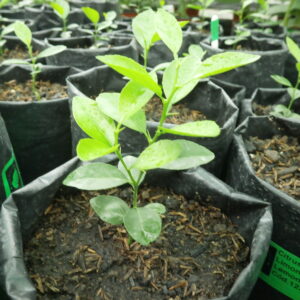
Lemon, Criollo, Lime, Key
Fruit orchard ₡2,550.00 Add to cart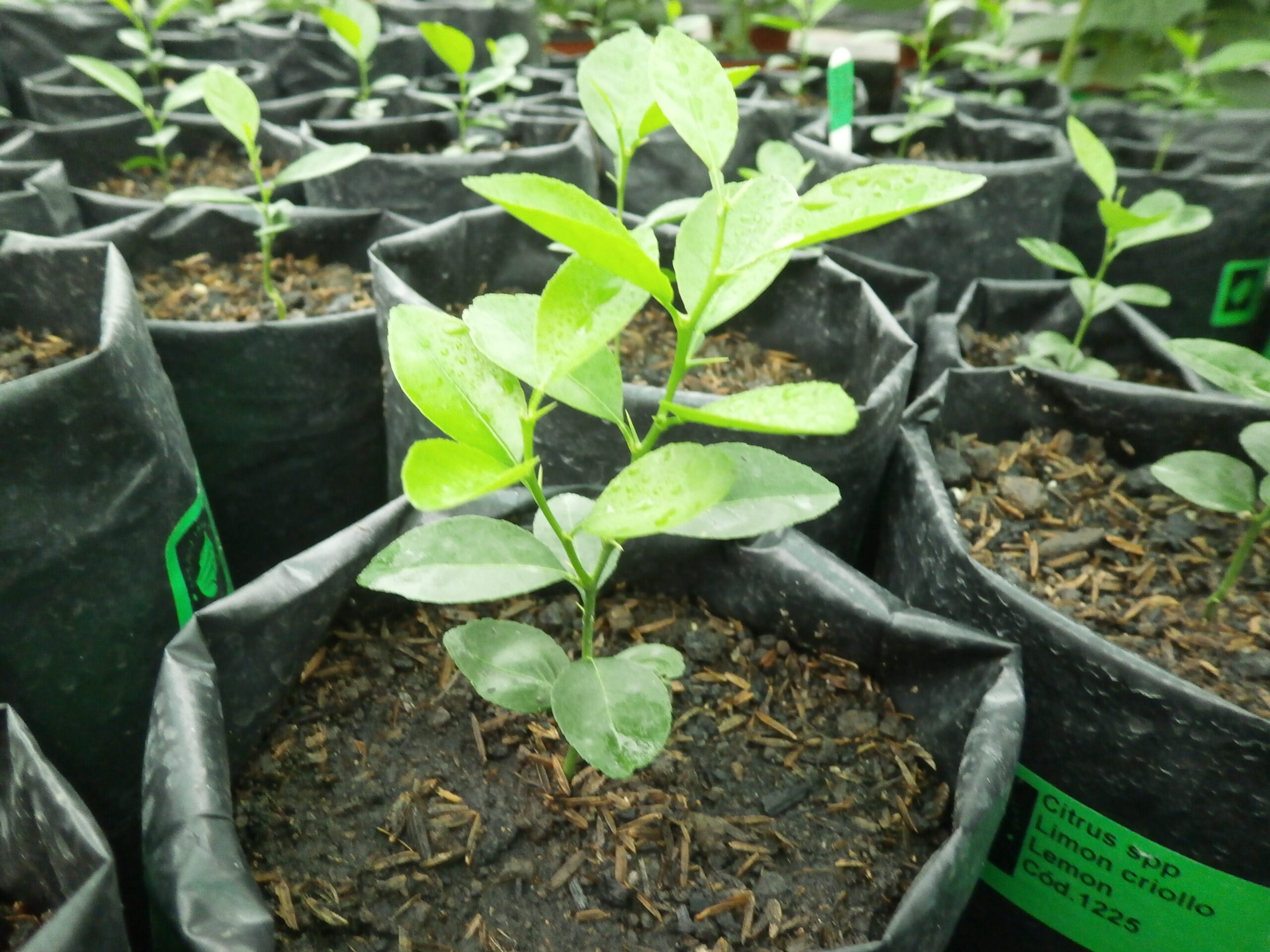
Lemon, Criollo, Lime, Key
₡2,550.00
SKU: 1225 Category: Fruit orchardScientific name: Citrus × aurantiifolia
Family: Rutaceae
Origin: Asia and India
Medicinal use: The Creole lemon is a lime. Citrus aurantifolia is actually a lime, it is more acidic than a conventional lemon. The fruits have 10 to 12 segments. The pulp is greenish-yellow in color, tender, juicy, very acidic, with a distinctive aroma. The fruits are small, approximately an inch to an inch and a half in diameter, and round, with a thin, smooth rind, greenish-yellow when ripe and highly aromatic.
1 in stock
-
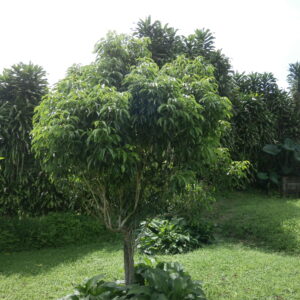
Lychee
Fruit orchard ₡6,300.00 Add to cart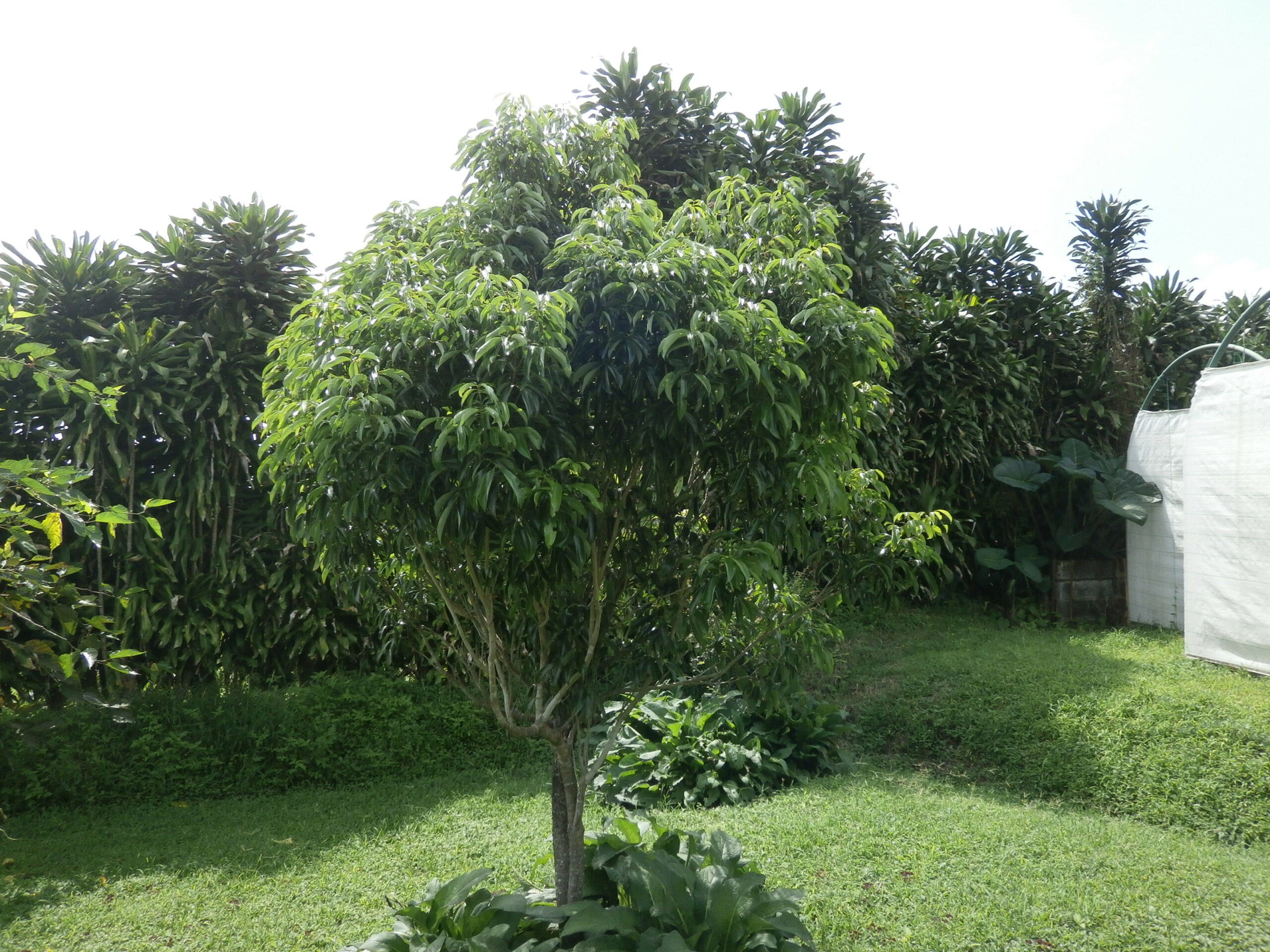
Lychee
₡6,300.00
SKU: 1247 Category: Fruit orchardScientific name: Litchi chinensis
Family: Sapindaceae
Origin: China and Vietnam
Medicinal use: Lychee or litchi is a tropical fruit that is known as an “excellent source of sugar, protein, fiber, vitamins, calcium, potassium, phosphorus and magnesium. The fruit is an ovoid, heart-shaped, or nearly round drupe about 2.5 cm in diameter or larger. The interior is formed by a translucent white juicy pulp, with a sweet and fragrant flavor. It is grown in some places as a melliferous tree, for its fruit rich in minerals (calcium and phosphorus), Vitamin C, A, B1 and B2.
4 in stock
-
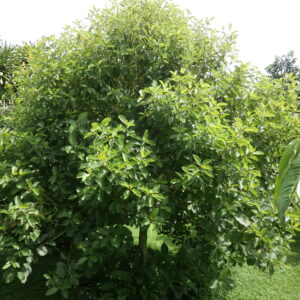
Mangosteen, Lemon drop
Fruit orchard ₡2,550.00 Add to cart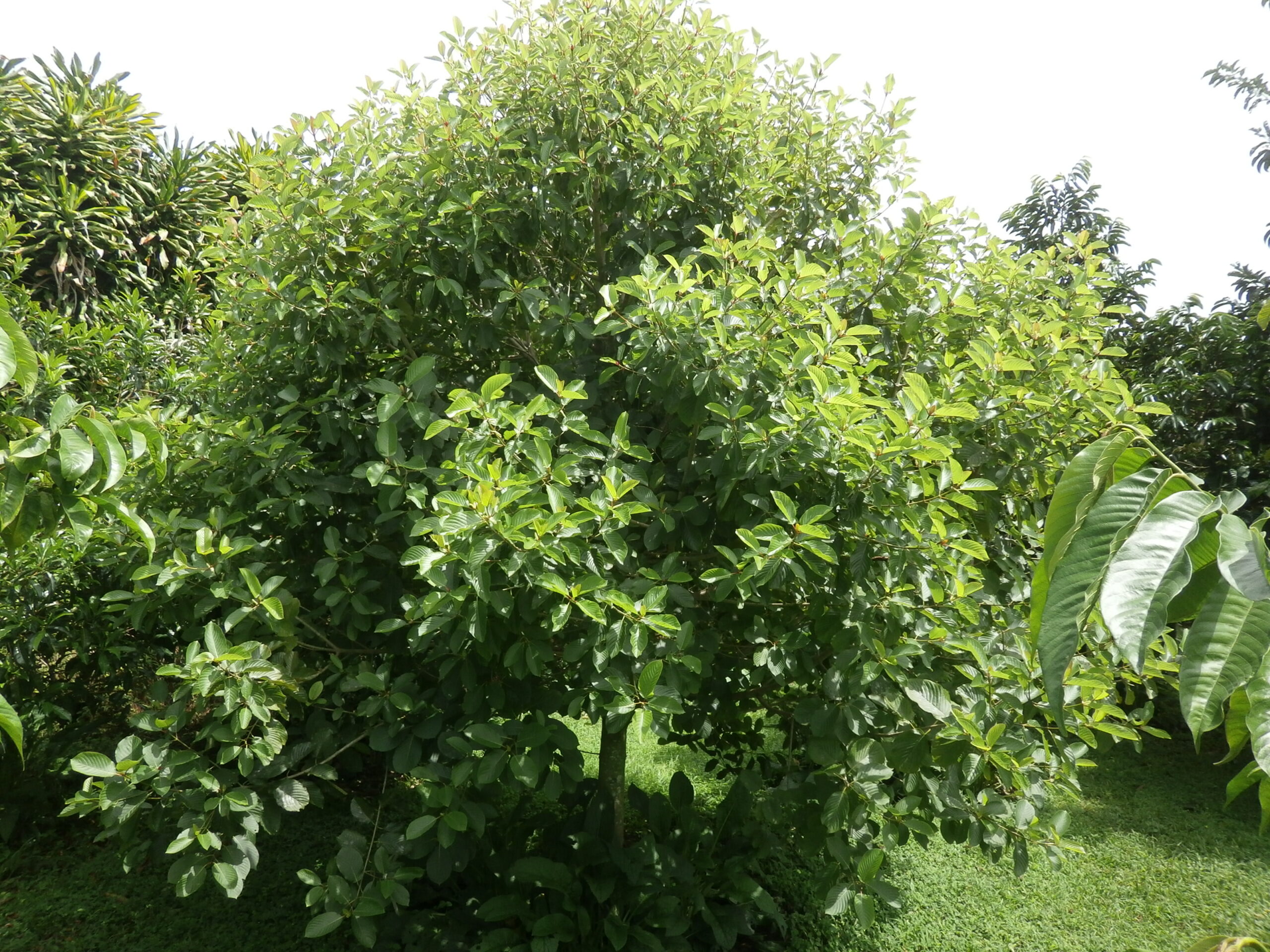
Mangosteen, Lemon drop
₡2,550.00
SKU: 1105 Category: Fruit orchardScientific name: Garcinia intermedia
Family: Clusiaceae
Origin: Mexico and C America
Medicinal use: The jorco (Garcinia intermedia) is an evergreen tree of the Clusiaceae family of edible fruits. They are also called mameyillo. The fruit is a spheroid capsule that measures between 2 to 5 cm long and up to 6 cm in diameter. The scarce pulp or edible part has an acid taste, said fruit is eaten ripe or raw.
39 in stock
-
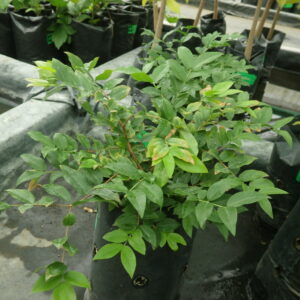
Jaboticaba
Fruit orchard ₡3,750.00 Add to cart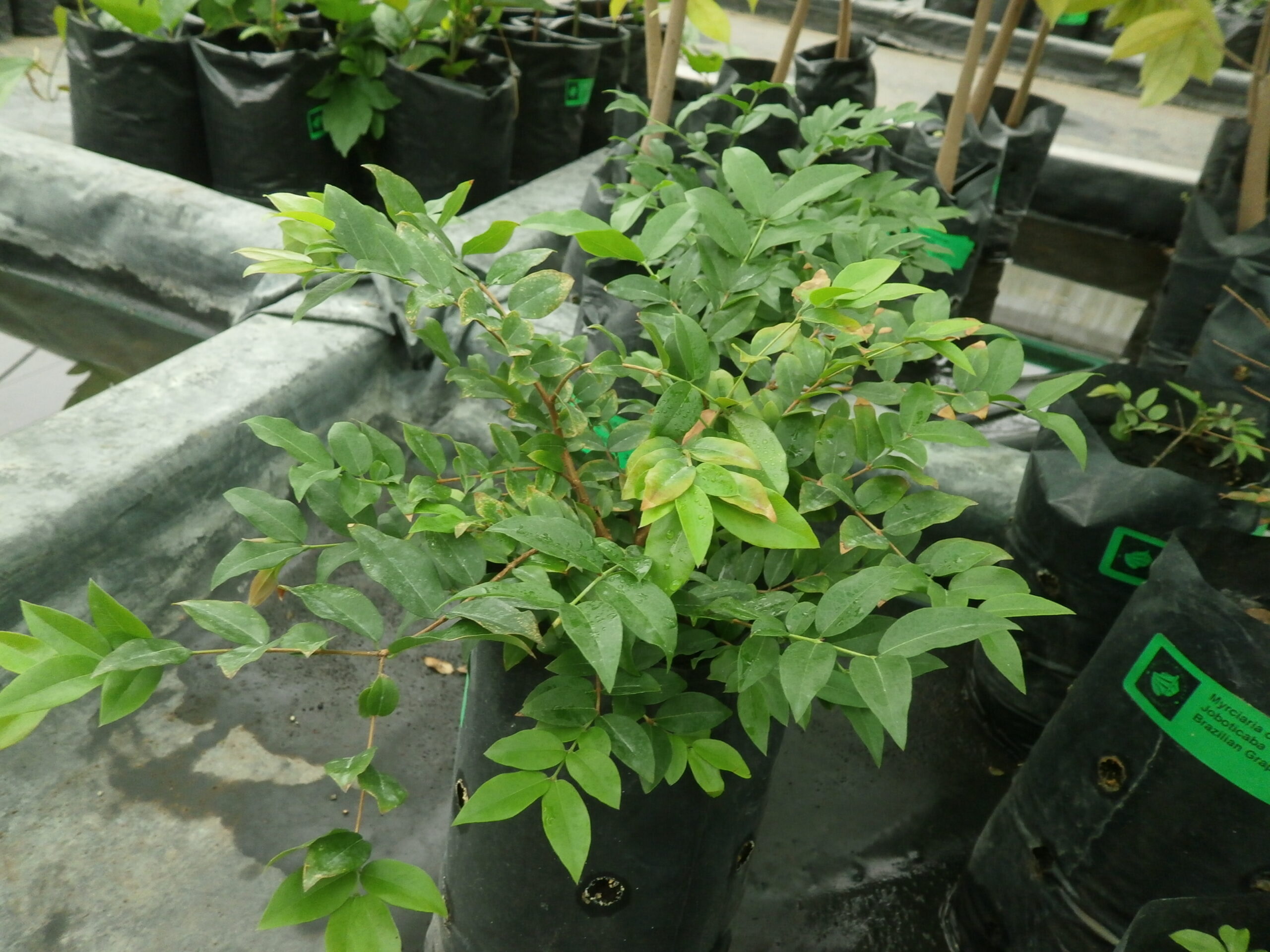
Jaboticaba
₡3,750.00
SKU: 1050 Category: Fruit orchardScientific name: Plinia cauliflora
Family: Myrtaceae
Origin: S Africa
Medicinal use: The Jaboticaba or guapurú is a tortuous-looking tree, with few branches, thick bark and a bit thorny. It has a thin and smooth skin, while its pulp is white and juicy, with a bittersweet flavor. It is consumed directly as fresh fruit, but soft drinks, jams, liqueurs, homemade vinegars and others are also prepared. It is consumed directly as fresh fruit, but soft drinks, jams, liqueurs, homemade vinegars and others are also prepared.
8 in stock
-
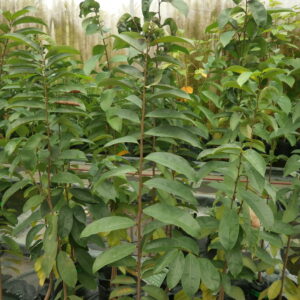
Soursop
Fruit orchard ₡3,750.00 Add to cart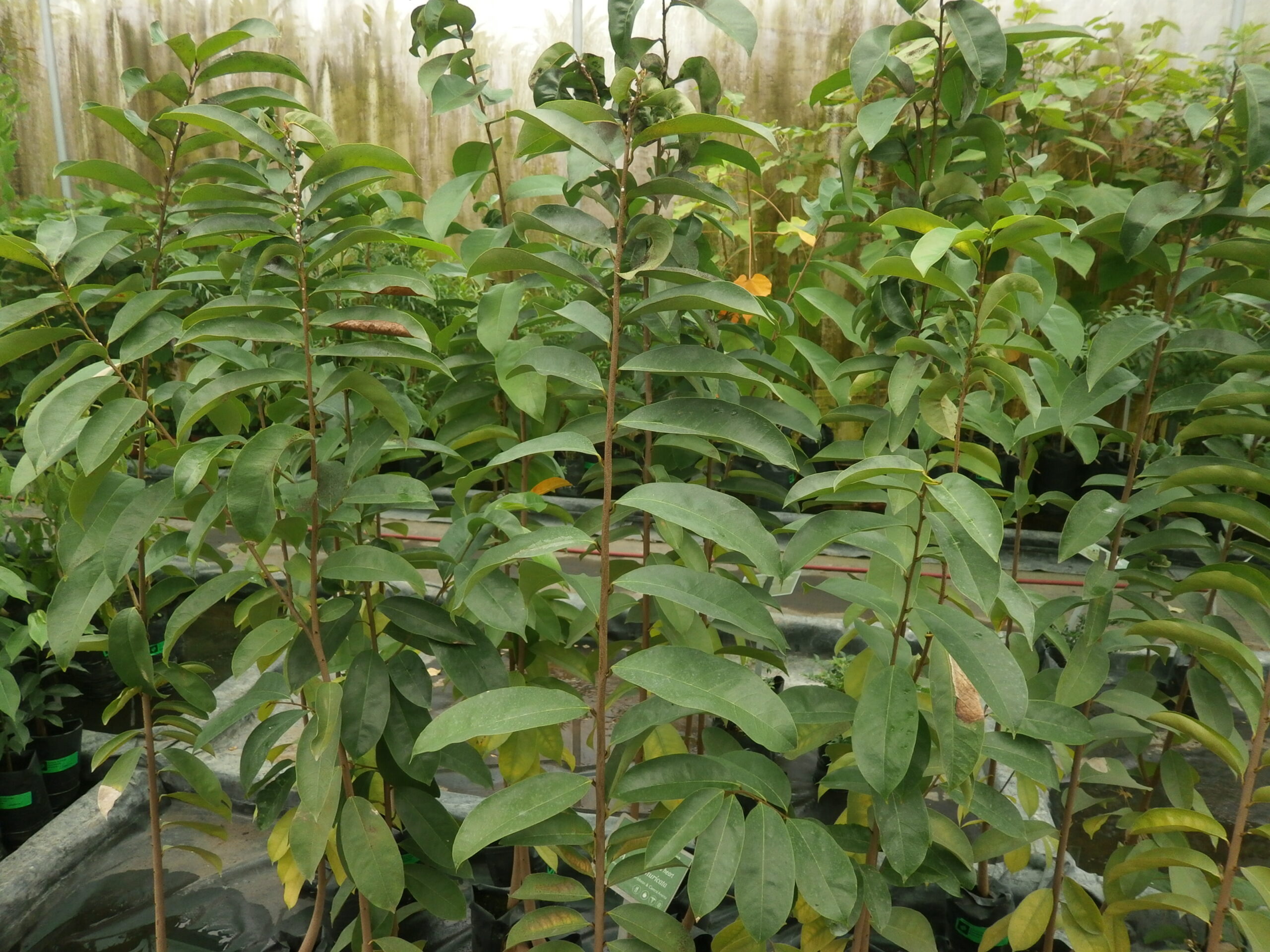
Soursop
₡3,750.00
SKU: 0900 Category: Fruit orchardScientific name: Annona muricata
Family: Annonaceae
Origin: Mexico and Tropical America
Medicinal use: Annona muricata, the soursop name of Taino origin, is cultivated for its edible fruits in many countries with a tropical climate. Both the fruit and the leaves of A. muricata are attributed medicinal properties. The most widespread is that it cures cancer but does not specify what type of cancerous tumor. The fruit has a delicious sweet and sour taste, ideal to consume in juices and smoothies; but also the leaves of the graviola have medicinal properties.
21 in stock
-

Cherry, Brazilian
Fruit orchard ₡3,750.00 Add to cart
Cherry, Brazilian
₡3,750.00
SKU: 0890 Category: Fruit orchardScientific name: Eugenia brasiliensis
Family: Myrtaceae
Origin: S America
Medicinal use: Popular names: Grumichama, Brazilian cherry. S. It is a tree that reaches 15 meters in height with green, large and oval leaves, its fruits are globose black drupes with a cherry flavor that attract the local birds. Its fruits, in bunches, are eaten fresh and are also highly appreciated in jams and cakes.
23 in stock
-
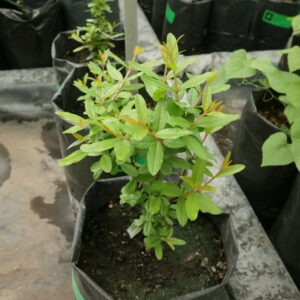
Pomegranate
Fruit orchard ₡2,550.00 Add to cart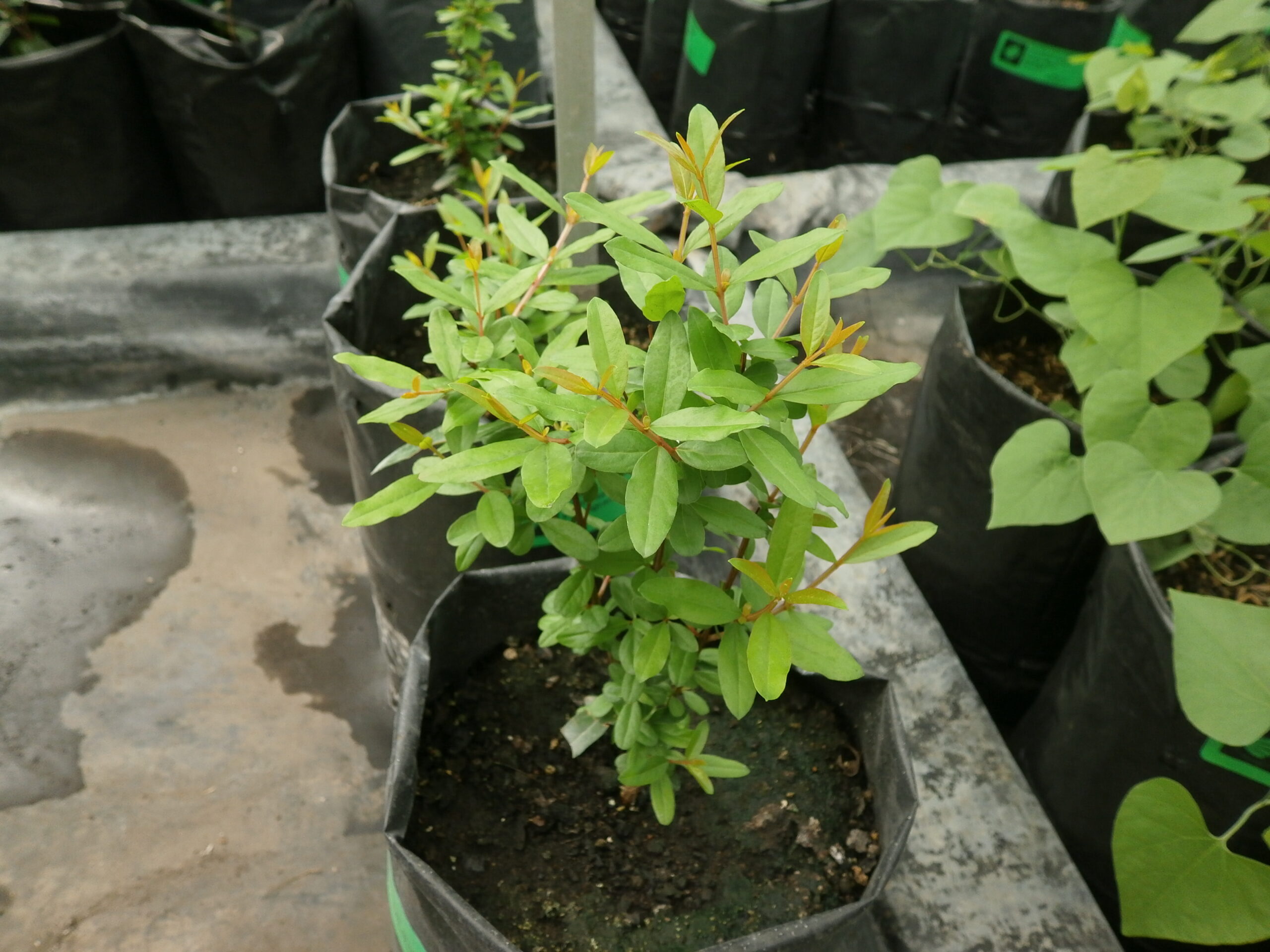
Pomegranate
₡2,550.00
SKU: 0876 Category: Fruit orchardScientific name: Punica granatum
Family: Lythraceae
Origin: Iran and India
Medicinal use: The pomegranate (Punica granatum) is a small deciduous fruit tree of the Lythraceae family, whose fruit is the pomegranate. The fruit is in a 5-12 cm balausta, spherical, leathery, reddish or reddish-yellow. Although the species is not native to Japan, it is widely cultivated in this country. Pomegranate juice is used as a natural dye in factories for non-synthetic products. The fruit is eaten fresh, grain by grain, removing the rind and bitter flakes.
8 in stock
1Cart
2Delivery & Payment
3Complete Order
